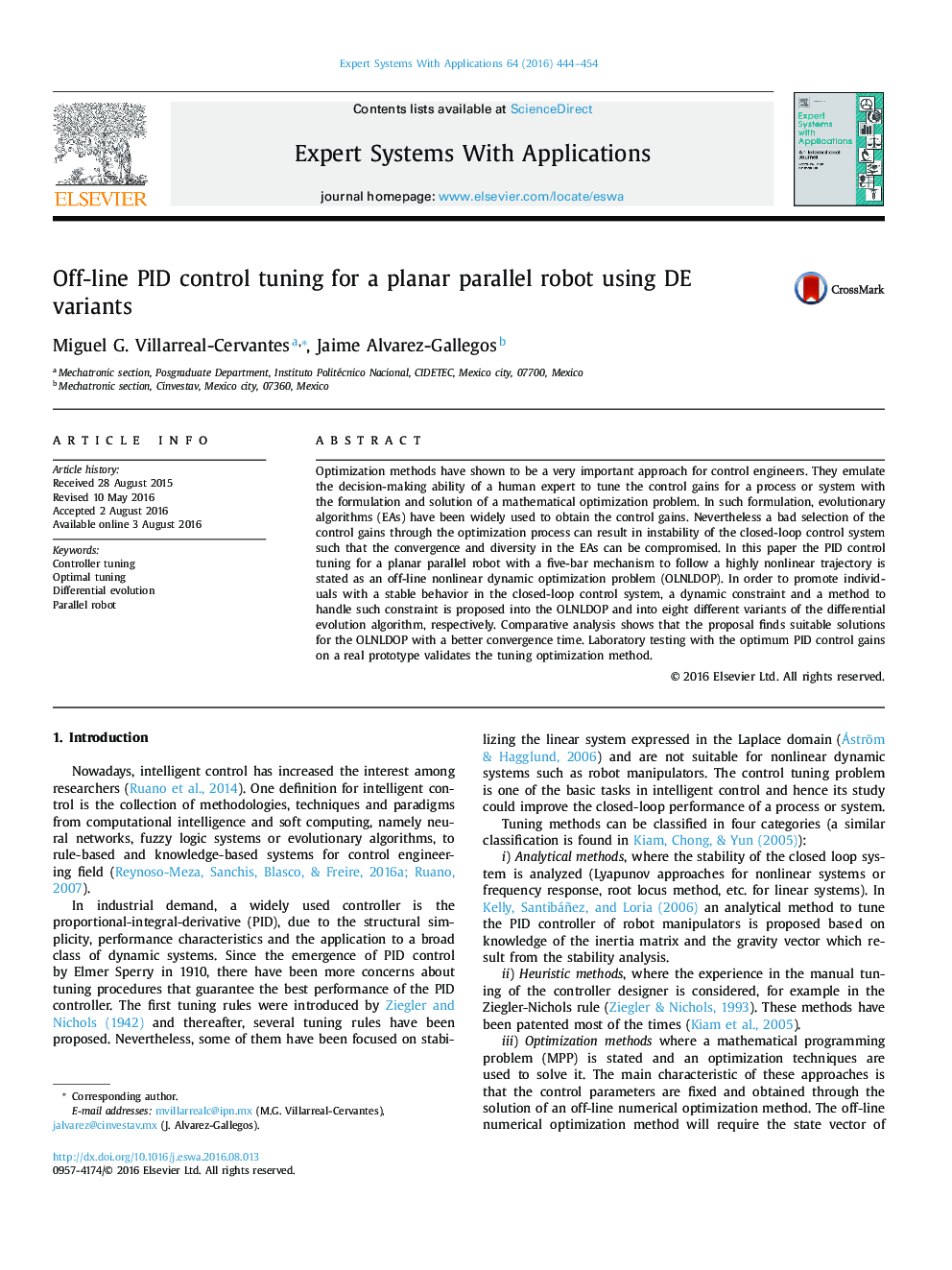| Article ID | Journal | Published Year | Pages | File Type |
|---|---|---|---|---|
| 6855571 | Expert Systems with Applications | 2016 | 11 Pages |
Abstract
Optimization methods have shown to be a very important approach for control engineers. They emulate the decision-making ability of a human expert to tune the control gains for a process or system with the formulation and solution of a mathematical optimization problem. In such formulation, evolutionary algorithms (EAs) have been widely used to obtain the control gains. Nevertheless a bad selection of the control gains through the optimization process can result in instability of the closed-loop control system such that the convergence and diversity in the EAs can be compromised. In this paper the PID control tuning for a planar parallel robot with a five-bar mechanism to follow a highly nonlinear trajectory is stated as an off-line nonlinear dynamic optimization problem (OLNLDOP). In order to promote individuals with a stable behavior in the closed-loop control system, a dynamic constraint and a method to handle such constraint is proposed into the OLNLDOP and into eight different variants of the differential evolution algorithm, respectively. Comparative analysis shows that the proposal finds suitable solutions for the OLNLDOP with a better convergence time. Laboratory testing with the optimum PID control gains on a real prototype validates the tuning optimization method.
Related Topics
Physical Sciences and Engineering
Computer Science
Artificial Intelligence
Authors
Miguel G. Villarreal-Cervantes, Jaime Alvarez-Gallegos,
